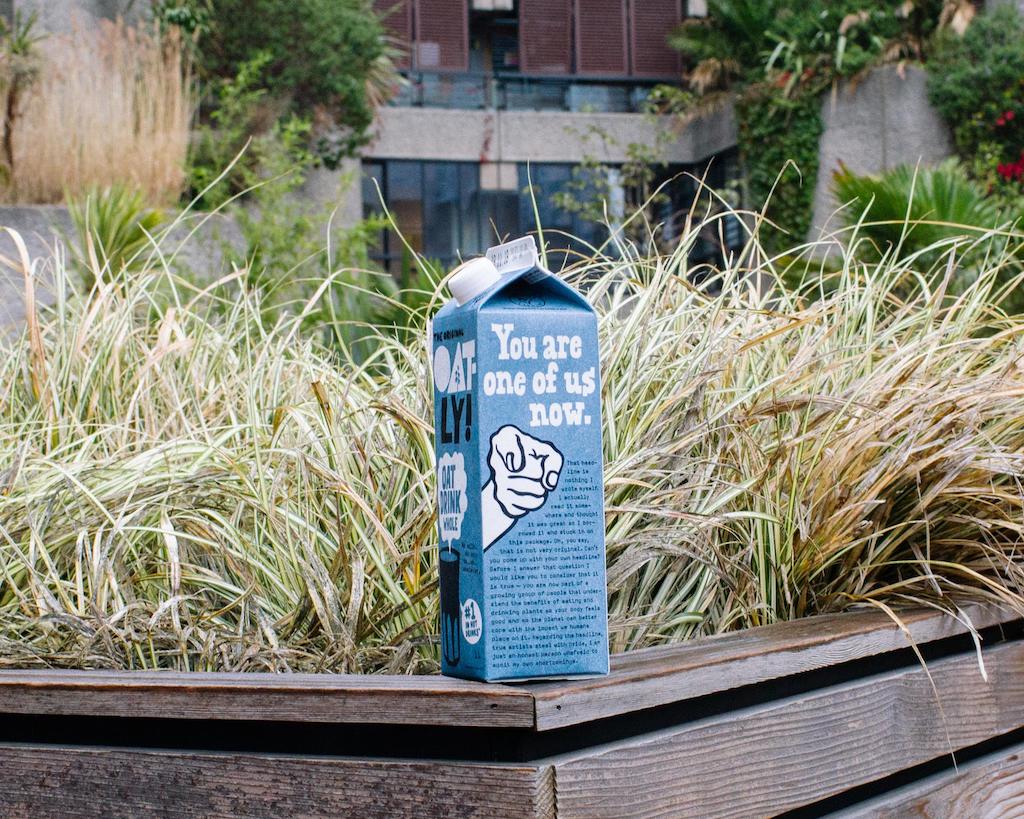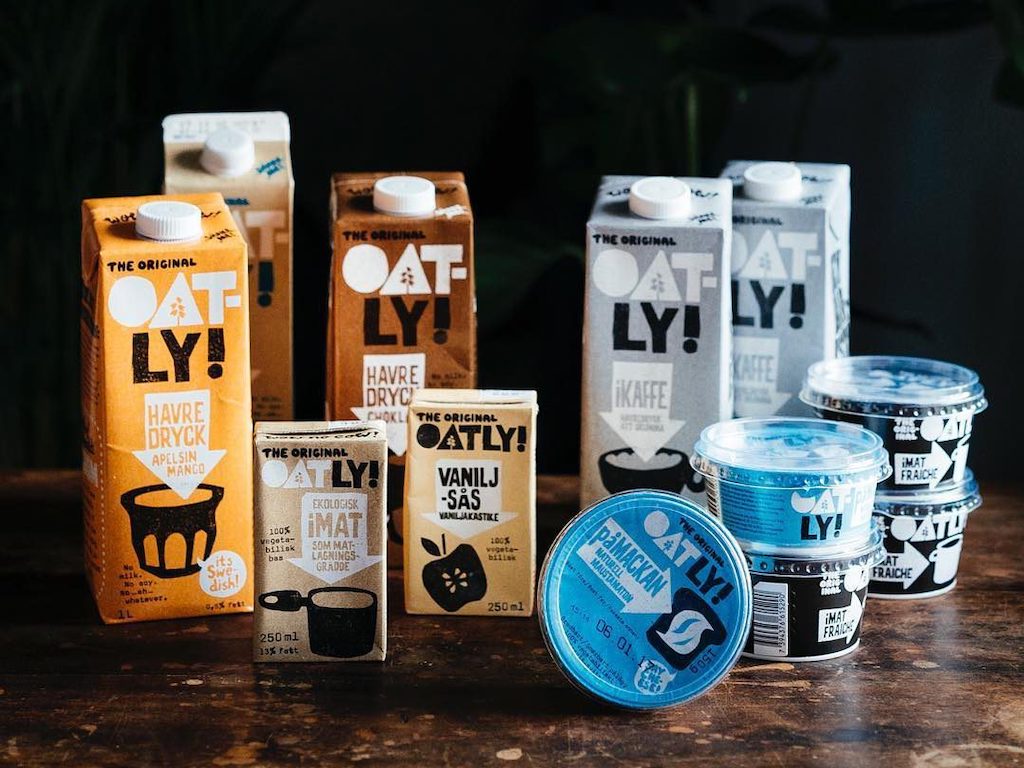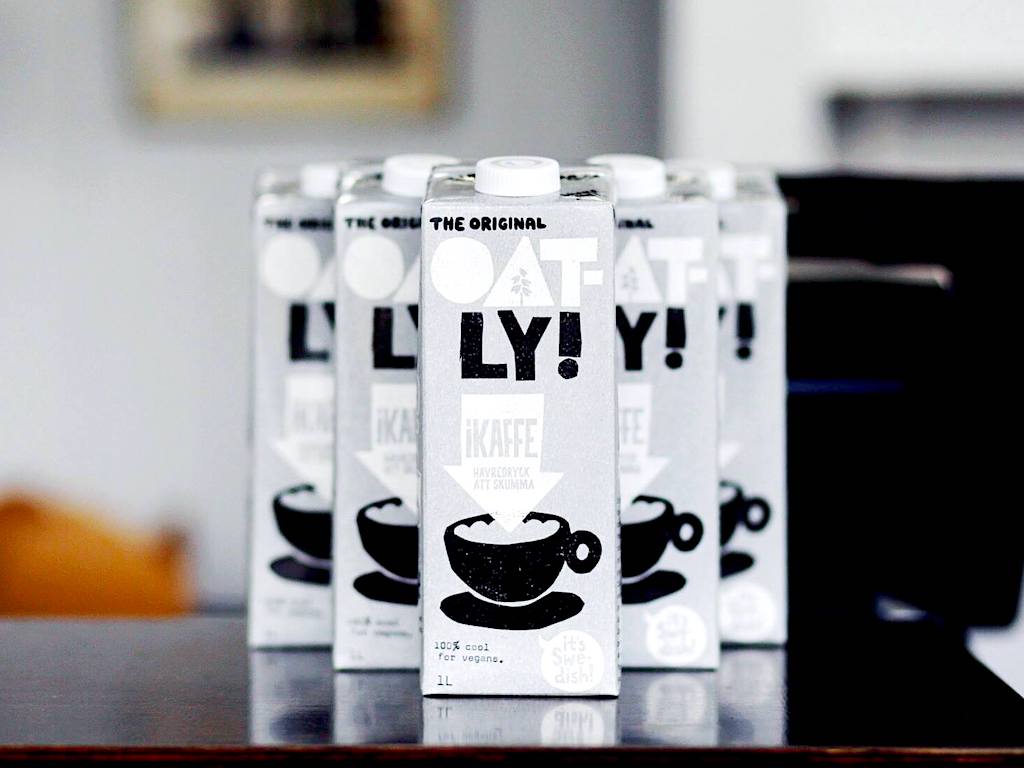Plant-Based Milk Giant Oatly Confidentially Files For U.S. IPO With Possible US$10 Billion Valuation
3 Mins Read
Oatly, the Swedish food tech behind one of the most recognisable plant-based milk brands on the market, has just confidentially filed to go public. The Blackstone-backed company’s listing will take place once the U.S. Securities and Exchange Commission (SEC) completes its review process.
Malmo-headquartered Oatly has submitted plans for an initial public offering to regulators, the company announced on Tuesday (February 23). The listing will take place after the SEC completes a regulatory review, with no further details on the terms of the planned sale provided by the food tech. According to a recent report from Bloomberg, Oatly could be seeking a value of US$10 billion in its U.S. IPO.
Sources told Reuters that Oatly has hired Morgan Stanley, JPMorgan and Credit Suisse as underwriters on the offering, though all three firms have yet to respond for comment.
The registration documents were submitted confidentially, which allows the Oprah-backed firm to keep their financial information secret until a closer date to when they will begin marketing the deal. Currently, the biggest shareholder of Oatly is the Belgian family-owned investment firm Verlinvest.

The previous Bloomberg report revealed that for a time, Oatly did consider going public in Hong Kong as well, but for now has pressed on with just a U.S. IPO, with no reasons cited for the decision.
The latest move in Oatly’s public debut, which has been going on for weeks, will no doubt rouse discussions among investors, given rise to become one of the biggest plant-based players on the market, often sharing the same footing as the world’s first public vegan food tech, Beyond Meat.
The plant-based industry has also been eyed as one of the fastest-growing markets, especially as mainstream consumers hop on board to drive record-breaking sales over the past year since the pandemic struck, within the U.S. and globally.
Oat milk sales in particular have surged to become the second most popular in the fast-growing plant-based milk category. Oatly’s own sales have seen triple-digit annual growth for three consecutive years, and it is expected to be profitable this year if it manages to record a doubling of its U.S. revenues to US$400 million.

Over the past year, the Swedish food tech has undergone major expansion internationally with its products sold in more than 20 countries. It landed in Singapore for the first time in late 2020, following coffee giant Starbucks’ decision to partner with the brand to launch new plant-based options in eight Asian markets and in mainland China, the biggest and most lucrative of all markets in the region eyed by many startups as the key to drive the sustainable food revolution.
Most recently, the bold oat milk maker also caused a stir recently for its Super Bowl commercial featuring its CEO Toni Petersson singing his original song “Wow, No Cow” in a field of oats. Comments flowed throughout the social media platform Twitter for the better part of the event, no doubt a part of its plan to reach millions of mass consumers and further mainstream the plant-based movement.
For the most part, the commercial took the heat off the far more negative attention it received after ex-Oatly fans lodged a boycott against the brand regarding its controversial US$200 million investment it received from deforestation-linked firm Blackstone, whose CEO Steve Schwarzman is a major donor to Donald Trump Super PACs.
All images courtesy of Oatly.




